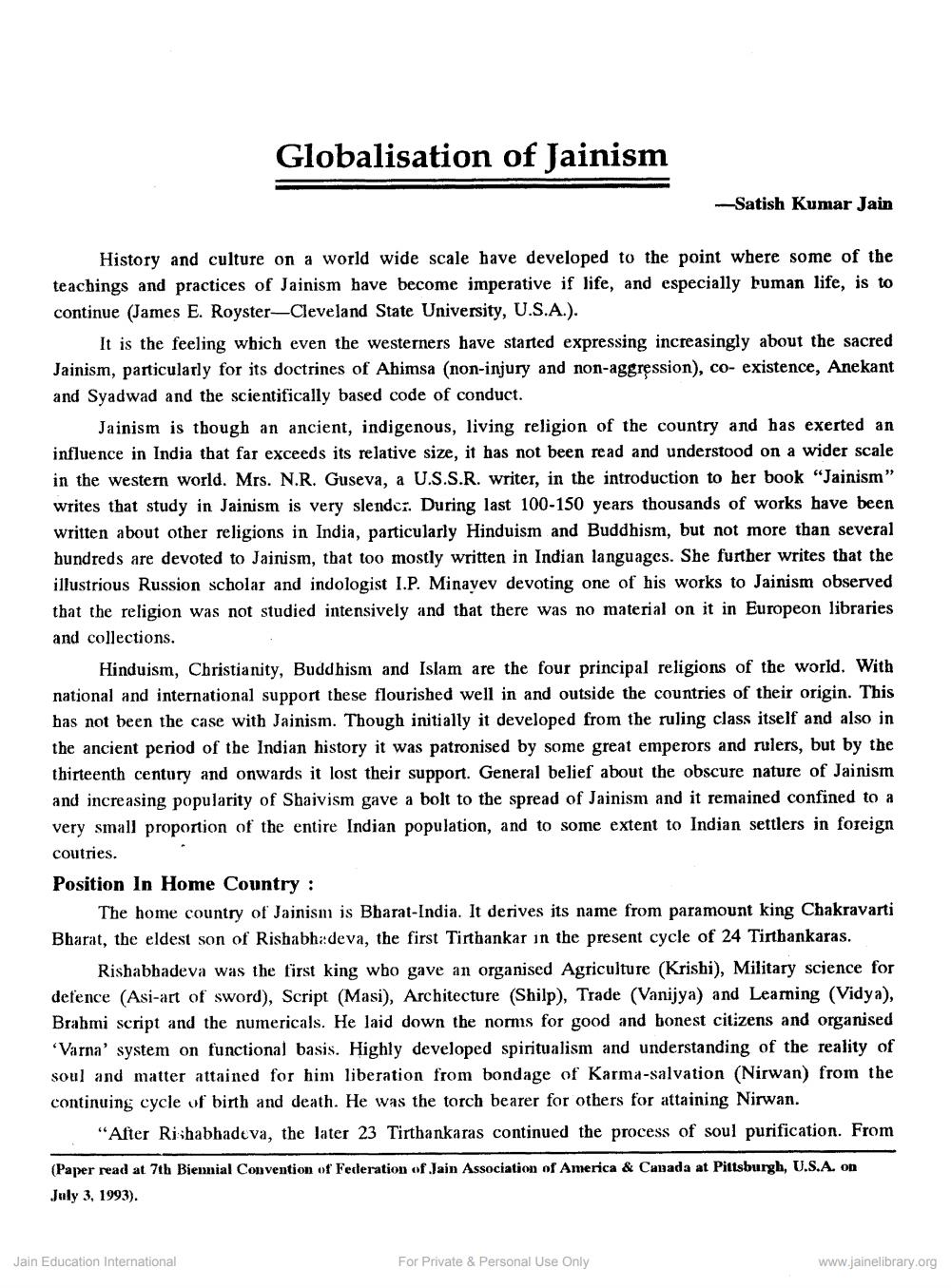________________
Globalisation of Jainism
-Satish Kumar Jain
History and culture on a world wide scale have developed to the point where some of the teachings and practices of Jainism have become imperative if life, and especially human life, is to continue (James E. Royster-Cleveland State University, U.S.A.).
It is the feeling which even the westerners have started expressing increasingly about the sacred Jainism, particularly for its doctrines of Ahimsa (non-injury and non-aggression), co-existence, Anekant and Syadwad and the scientifically based code of conduct.
Jainism is though an ancient, indigenous, living religion of the country and has exerted an influence in India that far exceeds its relative size, it has not been read and understood on a wider scale in the western world. Mrs. N.R. Guseva, a U.S.S.R. writer, in the introduction to her book "Jainism” writes that study in Jainism is very slender. During last 100-150 years thousands of works have been written about other religions in India, particularly Hinduism and Buddhism, but not more than several hundreds are devoted to Jainism, that too mostly written in Indian languages. She further writes that the illustrious Russion scholar and indologist I.P. Minavev devoting one of his works to Jainism observed that the religion was not studied intensively and that there was no material on it in Europeon libraries and collections.
Hinduism, Christianity, Buddhism and Islam are the four principal religions of the world. With national and international support these flourished well in and outside the countries of their origin. This has not been the case with Jainism. Though initially it developed from the ruling class itself and also in the ancient period of the Indian history it was patronised by some great emperors and rulers, but by the thirteenth century and onwards it lost their support. General belief about the obscure nature of Jainism and increasing popularity of Shaivism gave a bolt to the spread of Jainism and it remained confined to a very small proportion of the entire Indian population, and to some extent to Indian settlers in foreign coutries. Position In Home Country :
The home country of Jainism is Bharat-India. It derives its name from paramount king Chakravarti Bharat, the eldest son of Rishabhadeva, the first Tirthankar in the present cycle of 24 Tinthankaras.
Rishabhadeva was the first king who gave an organised Agriculture (Krishi), Military science for defence (Asi-art of sword), Script (Masi), Architecture (Shilp), Trade (Vanijya) and Learning (Vidya), Brahmi script and the numericals. He laid down the norms for good and bonest citizens and organised 'Varna' system on functional basis. Highly developed spiritualism and understanding of the reality of soul and matter attained for him liberation from bondage of Karma-salvation (Nirwan) from the continuing cycle of birth and death. He was the torch bearer for others for attaining Nirwan.
"After Rishabhadeva, the later 23 Tirthankaras continued the process of soul purification. From
(Paper read at 7th Biennial Convention of Federation of Jain Association of America & Canada at Pittsburgh, U.S.A. on July 3, 1993).
Jain Education International
For Private & Personal Use Only
www.jainelibrary.org




